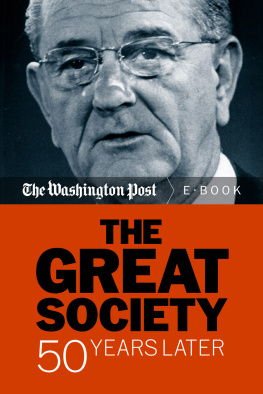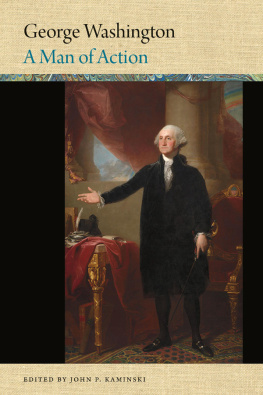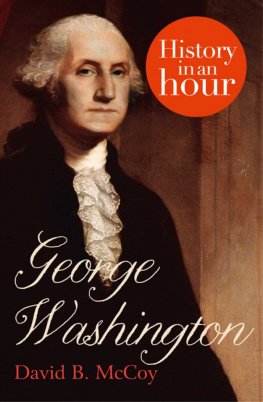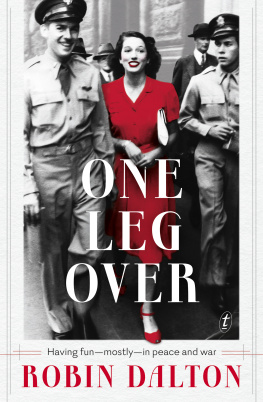ABOUT THE AUTHOR
JOSEPH DALTON has been a general arts reporter and classical music critic for the Times Union in Albany, New York since 2002. He earned a first-place award for arts and entertainment writing from the New York Associated Press, and he has twice received the ASCAP Deems Taylor Award for music journalism. A native of Fort Worth, he earned degrees in music (Catholic University of America) and arts administration (Southern Methodist University). Dalton launched his career in the record business working for three years in A&R administration at CBS Masterworks/Sony Classical. For 10 years he was executive director of the indie classical label Composers Recordings, Inc., where he produced 300 CD titles, two of which earned Grammy nominations. As a writer, Dalton has also been a contributor to The Washington Post, Time Out New York, Opera News and The Advocate , among other publications. Hope Ridings Miller and Joseph Ridings Dalton were first cousins twice removed.

WASHINGTONS GOLDEN AGE
Published by Rowman & Littlefield
An imprint of The Rowman & Littlefield Publishing Group, Inc.
4501 Forbes Boulevard, Suite 200, Lanham, Maryland 20706
www.rowman.com
Unit A, Whitacre Mews, 2634 Stannary Street, London SE11 4AB
Distributed by NATIONAL BOOK NETWORK
Copyright 2018 by The Rowman & Littlefield Publishing Group, Inc.
All rights reserved . No part of this book may be reproduced in any form or by any electronic or mechanical means, including information storage and retrieval systems, without written permission from the publisher, except by a reviewer who may quote passages in a review.
British Library Cataloguing in Publication Information Available
Library of Congress Cataloging-in-Publication Data
Names: Dalton, Joseph, author.
Title: Washingtons golden age : Hope Ridings Miller, the society beat, and the rise of women journalists / Joseph Dalton.
Description: Lanham : Rowman & Littlefield, 2018. | Includes bibliographical references and index.
Identifiers: LCCN 2018012464 (print) | LCCN 2018019263 (ebook) | ISBN 9781538116159 (Electronic) | ISBN 9781538116142 (cloth : alk. paper)
Subjects: LCSH: Miller, Hope Ridings. | Women journalistsUnited StatesBiography. | Women periodical editorsUnited StatesBiography.
Classification: LCC PN4874.M4915 (ebook) | LCC PN4874.M4915 D35 2018 (print) | DDC 070/.92 [B]dc23
LC record available at https://lccn.loc.gov/2018012464
 The paper used in this publication meets the minimum requirements of American National Standard for Information SciencesPermanence of Paper for Printed Library Materials, ANSI/NISO Z39.48-1992.
The paper used in this publication meets the minimum requirements of American National Standard for Information SciencesPermanence of Paper for Printed Library Materials, ANSI/NISO Z39.48-1992.
Printed in the United States of America
INTRODUCTION
G rowing up in Texas, I always heard the name of my elder cousinHope Ridings Millerspoken with a certain reverence. She was an East Coast institution, a point of pride, a star of accomplishment and success. I come from the Ridings side of her family tree. Hope and my maternal grandfather, Olan Ridings, were first cousins. My full name rings with the same cadence: Joseph Ridings Dalton.
I remember Hopes three books proudly displayed on the coffee table in my grandparents living room. Issues of her magazine, Diplomat , must have been on hand, as well. Once I was well into researching this biography, certain covers of the magazine resonated for me, evoking a little boys curiosity and wonder at faraway glamour and elegance.
Missing the chance to call on Hope during a visit to Washington would have been like skipping the Smithsonian. When I was a sophomore in high school, I attended a weeklong model Congress on Capitol Hill. My mother made sure that along with my suits, sport coats, and ties, also safely packed away was cousin Hopes phone number. Once in town I called her from a pay phone and introduced myself. Without hesitation, she invited me to lunch the next day at the National Press Club.
I must have been pretty nervous during that phone call because I wrote down the wrong address. I would have been terribly late if Id kept going on foot from wherever I was in downtown to wherever I thought I should be. So I hailed a taxi. That was a new experience. We didnt have cabs in Fort Worth, not much of a downtown either, and D.C. sure did feel like a big city. Luckily, the driver knew the Press Club, which turned out to be practically around the corner.
I wondered how Hope and I would recognize each other, not realizing that Id be the only 15-year-old showing up alone for a midweek luncheon. As I stepped out of the elevator, she was sitting contentedly on a bench right in front of me and offering a sincere little smile. Maybe she could tell I was flustered. After she rose and we clasped hands, she leaned forward to give the tiniest embrace. That kind of cheek hug became our customary greeting during the ensuing years of friendship.
Our meal was interrupted several times by Hopes friends and colleagues who came by to pay respects. Looking back, I fear that my manners werent up to snuff. I didnt stand when I was introduced, and I could have ordered something less sloppy to eat than a roast beef sandwich au jus.
For all the learning and growing that was still ahead of me, Washington seemed like a great place to start. I returned two years later to serve as a Congressional Page in the House of Representatives. It was early 1981, the beginning of the Reagan years and a thrilling time to observe politics and government at work. Pages had unique access to the House floor and virtually every corridor of the entire Capitol Hill complex. Thanks to my well-connected cousin, I also made it to other places of power.
Just a week or so after Id arrived, Hope took me along to a reception at an impressive colonial-style home in Georgetown. The small gathering featured a screening of a short documentary about Jim Wright, the House Majority Leader who was also my Congressman. During his twenty-five years in Congress, Wright had appointed countless pages. I think its safe to say that I was the only one of them who appeared out of nowhere at a private Georgetown party. The impression I made just by being there that one night illustrated the point that Hope had spent her career articulating in one article after anotherthat the social scene was a valid and effective way to get ahead in town.
Twenty years later, when my career turned from arts administration toward journalism, I recalled that there was another writer in the family. Delving into Hopes books, I flashed on the idea of writing her biography. Its been a labor of love for the better part of a decade. The research has encompassed reading more than 1,200 columns that she produced for the Washington Post , and perusing twelve years of Diplomat magazine, along with the correspondence and photos that she left behind. Sometimes Id feel a flash of inspiration and sense Hope nearby, saying, Its all there, dear.
I hope that this book paints a picture of a gentler side of politics and diplomacy. Things like dignity, courtesy, and respect once mattered in our nations Capital and they were Hopes stock-in-trade. Politics was still contentious, thats its nature. But rumors and potential scandals made their way around the city mostly by whispers, not by promulgation on 24-hour cable news shows. Most importantly, things got done. Maybe the legislators in Washington found it harder to attack each other by day when theyd broken bread together by night. It feels like another world.
PRELUDE: DINNER AT THE WHITE HOUSE









 The paper used in this publication meets the minimum requirements of American National Standard for Information SciencesPermanence of Paper for Printed Library Materials, ANSI/NISO Z39.48-1992.
The paper used in this publication meets the minimum requirements of American National Standard for Information SciencesPermanence of Paper for Printed Library Materials, ANSI/NISO Z39.48-1992.